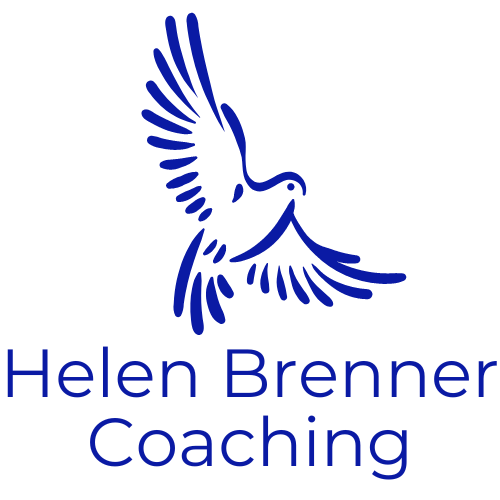Forgiveness On My Terms
Redefining Healing After Trauma
The journey of healing from childhood trauma is intensely personal.
It is a path riddled with externally imposed expectations, perhaps none so pervasive as the concept of forgiveness.
This societal prescription suggests that forgiveness is not just a noble act, but a necessary one for my own spiritual salvation. "Forgive, and you will be forgiven," they said, as if my access to peace—or even to God’s grace—hinged upon my capacity to let go of the wrongs done to me.
Society’s Expectations
I’ve often thought deeply about the root of society’s fixation on the survivors' forgiveness. Was it an attempt to alleviate a vicarious sense of guilt, or was it a well-meaning but misguided attempt to restore balance, to wrap up the chaos of trauma with a neat bow of forgiveness? This call for closure, more often than not, seemed to serve others' comfort more than my healing, sidestepping the raw, enduring aftermath of trauma that survivors grapple with daily.
Misunderstanding Trauma’s Impact
Such pressures reveal a misunderstanding of the complexities of trauma's impact. The rote declaration of forgiveness was proposed as a panacea, yet it overlooked the insidious ways trauma lingers—through flashbacks that invade the mind and self-doubt that erodes the spirit. This oversimplification of the healing process failed to address the work involved in undoing the deep-seated beliefs instilled by years of abuse.
A Personal Perspective on Individual Journeys
Professionally, as I guide clients through the tangles of their own stories, I recognize the disservice of promoting a one-size-fits-all approach to forgiveness. My work emphasizes the sanctity of each individual's unique journey, acknowledging that the roadmap to recovery is as varied as the experiences that define us. In my practice, I prioritize the principles of self-compassion and empowerment over the hollow echo of mandated forgiveness.
Inviting a Broader Conversation
The narrative I share now is one often muted—questioning the insistence on forgiveness and the societal desire to dictate how healing 'should' look. I invite a broader conversation that validates every survivor’s experience, with or without forgiveness, knowing that healing can take many forms.
Healing as a Personal Evolution
My personal journey has mirrored the experience of meeting someone briefly and then never seeing them again. Those who once had starring roles in the saga of my pain have been relegated to the periphery, shadows of a former reality. They no longer occupy my thoughts or influence my path; they have become inconsequential to my daily life.
Reflections for the Road Ahead
As I prepare to share my narrative through the chapters of my upcoming book, “How I Got Here” and “Who I Am Now,” I delve into reflections that span over two decades. In my younger days, the mandate to forgive only intensified feelings of guilt, shame, and confusion. I was led to believe that forgiveness was a balm for my wounds, but in truth, it often felt more like salt being rubbed in them.
The Moral Imperative Questioned
Many survivors I have spoken with echo this sentiment. The expectation to forgive frequently seems more about alleviating the discomfort of onlookers than addressing the needs of the survivor. Forgiving is portrayed as a moral imperative, implying that in the absence of forgiveness, there is a moral failing. This skewed portrayal neglects the genuine needs and rights of survivors to process their trauma in a way that is authentic to them.
Forgiveness as a Spectrum of Choices
There are survivors who choose forgiveness, finding it a conduit to lessen their burden. Others may voice forgiveness to appease the chorus of 'shoulds' from society. Yet, this often results in a superficial assuagement, a performative act that conceals unresolved anguish beneath a veneer of resolution.
Empowerment Over Expectation
Through my own healing, I’ve relinquished the misplaced shame and expectation to pronounce forgiveness. My perspective has evolved to view forgiveness not as a requisite but as one of many choices on the spectrum of healing. This realization is not rooted in bitterness; rather, it's born from a deep-seated sense of autonomy and recognition of my inner peace.
Facing the Risks of Sharing
I acknowledge that publishing these thoughts carries a risk. There is a vulnerability in possibly alienating potential clients or reigniting the very debates I seek to transcend. However, my aim is not to engage in dialogues about whether I should forgive. Instead, I want to shift the conversation to how we can create a society that demands accountability from perpetrators, one that fosters an environment conducive to healing, not just for survivors, but orchestrated by those who have caused harm. Now that, to me, would be a truly divine resolution.
The Journey Forward
The expectation of forgiveness is no longer a chain that binds me. It has become irrelevant in the context of my journey—a concept I’ve weighed and gently set aside. For me, healing is not about whether I forgive; it's about the countless, nuanced steps I've taken toward a life where my past is not a daily torment but a distant memory, where I am the sole custodian of my peace and the author of my story.
. . .
An Open Invitation to Healing Together
If any part of this journey resonates with you—if you find yourself wrestling with the weight of forgiveness or the expectation to walk a path not your own—please know you're not alone. I'm here to meet you exactly where you are in your healing journey. Together, we can explore and understand the path that feels true for you, one step at a time. I welcome you to reach out, not just as someone who guides but as someone who listens, learns, and walks alongside you.
Contact me, and let's travel together on this journey toward healing with understanding, care, and respect for your individual story.

